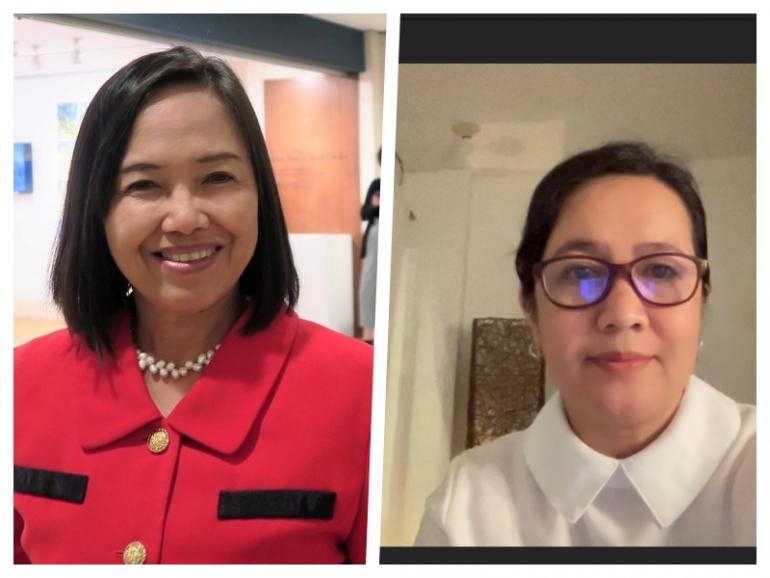Philippines: Study on Online Church Services Impact on Women

Two Catholic women educators are undertaking a study on the impact of online church service on Catholic women in Metro Manila during the pandemic in the Philippines.
The research is titled “Reception and Impact of Online Church on Catholic Women in National Capital Region during the Pandemic.”
It is “not funded” by any agency or educational institution, said Dr. Agnes M. Brazal, a full professor of theology at the De la Salle University, Manila, Philippines.
The study is being undertaken for “a paper to be presented at the biennial conference of the Ecclesia of Women in Asia (EWA) on the theme ‘Toward Life-Giving Communities in a Time of Pandemic: Asian Feminist Theological Perspectives,’” Brazal told Radio Veritas Asia.
EWA is an association of Catholic women theologians.
The conference of the EWA is scheduled to take place on February 24-26, 2022.
The crisis brought about by the COVID-19 pandemic has impacted religion and religious practices in various ways. The most dramatic result, according to a Gallup news report in 2020, was the sudden shift from face-to-face to online worship.
This study focuses more particularly on Catholic women’s religious activities during the quarantine and their participation, if any, in online religious or cyber church activities.
Cyber church or online church has been defined, from a ministry perspective, as religious communities that enable ‘worship and Christian education, evangelization, and community on the World Wide Web.’
Catholic women, who live in National Capital Region, are to participate in the research and give their honest responses.
The focus of research is on Catholic women is “because the paper will be presented in an Ecclesia of Women in Asia conference which is an association of Catholic women,” explained Brazal, a theologian.
Beyond this, the Catholic Church's theology of the "real presence" of Christ in the sacraments renders sacraments online problematic. This in itself is not the focus of this research that, however, can provide grounding for further research in this direction, she added.
One research in Columbia, a country in South America, also showed that women do more of their religious activities online during the quarantine than men who use traditional media.
Participation in this survey is purely voluntary. All responses to the data gathering (questionnaire) will be held and treated with the utmost confidentiality and will be utilized for research purposes only.
The other research colleague is Dr. Teresa Madolaria Camarines, who teaches at De la Salle University – Senior High School-Integrated School, Manila Campus.
De la Salle University is a Catholic research university run by the Institute of the Brothers of the Christian Schools.
“This study is descriptive and utilized a survey method to understand women’s reception and impact of online church activities amid the pandemic,” she said.
The researchers also adapted and modified various questions from similar or related studies that contextualize women's experiences and roles in this given circumstance. For the validity and reliability of the items (questions), the survey was also pilot tested on participants given a set of criteria.
“We hope to reach to many Catholic women in the National Capital Region via Facebook and emails as the results of the data gathered can help evaluate the impact of online Church activities on them,” Camarines said.
Researchers are committed to protecting the confidentiality of participants’ personal information and are bound to comply with the Data Privacy Act of 2012 (RA 110173) of the Philippines.
When asked how the results of the study will be utilized, Brazal said selected papers from the conference will be published with a special issue of the journal ‘Acta Theologica’ to be guest-edited by Brazal and Sister Rasika Pieris, a member of the Sisters of the Holy Family, Sri Lanka.
“On a more pastoral level, we hope the results of the research can guide churches in envisioning the face of the post-pandemic church,” Brazal said.
The publication of the study is expected to be released in the first quarter of 2023.
Radio Veritas Asia (RVA), a media platform of the Catholic Church, aims to share Christ. RVA started in 1969 as a continental Catholic radio station to serve Asian countries in their respective local language, thus earning the tag “the Voice of Asian Christianity.” Responding to the emerging context, RVA embraced media platforms to connect with the global Asian audience via its 21 language websites and various social media platforms.











